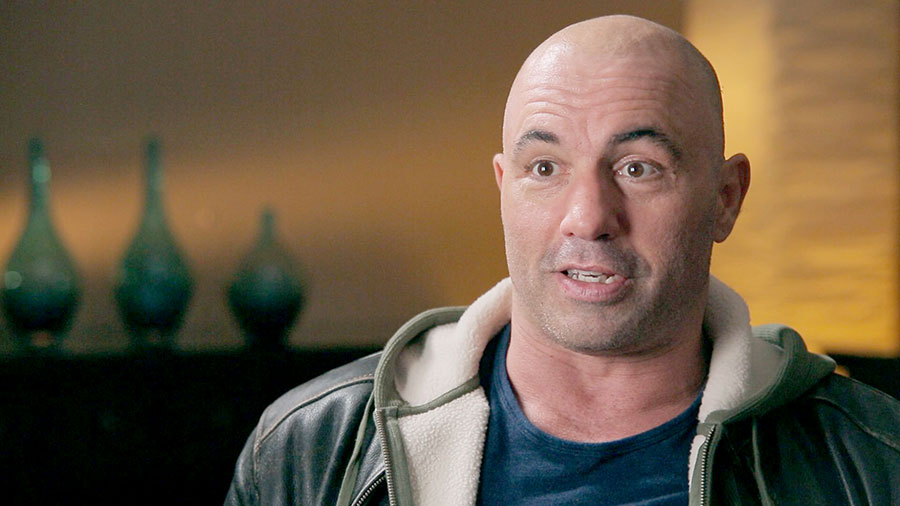The Culture High tries to do too much
When arguing about a social issue like the legalization of marijuana, it is very easy to oversimplify the conversation. In reality, the problem, along with every other social issue that persists, has a thicket of complications around it that need to be addressed if the problem is to be solved. Brett Harvey’s new documentary, The Culture High, addresses the issue of marijuana legalization and, at the very least, has to be commended for trying to wrangle with every factor that complicates the topic. The film tackles complex issues as varied as privatized prisons, NSA spying and media punditry and their direct effects on the conversation about marijuana. This admirable due diligence paid to addressing the complexity of the problem also cripples the film, however, as it is intrinsically superficial due to the constraints of a two-hour runtime.

Star-studded · The film features a cavalcade of stars and medical professionals giving their support for the cause. Joe Rogan (above) the most prevalent voice in the film along with Snoop Dogg and Richard Branson. – Photo courtesy of Phase 4 Films
The film’s direction starts out very straightforwardly. The first half hour or so is dedicated to debunking myths about the effects of marijuana use. A mix of medical professionals and celebrities are paraded in to recount the overwhelming evidence against marijuana being addictive, against it causing schizophrenia, against it being as harmful as smoking cigarettes or drinking, et cetera. It is what one expects to see when watching a film arguing for marijuana legalization. The visuals are crisp and attention-grabbing. Well-spoken academics like Lester Grinspoon, associate professor emeritus of psychiatry at Harvard Medical School, and David Nutt, the chair of the neuropsychopharmacology department at the Imperial College in London provide hard evidence. Energetic celebrities like Joe Rogan and Snoop Dogg argue the case. It’s entertaining and funny but also informative, focusing on the central issue.
After that first half hour, however, the film takes a decided turn, it feels like a free association game on what is wrong with America. It first dives into the drug war, bringing in several ex-members of the justice and law enforcement systems to add their voices to the chorus. This ties in directly with the central issue and would also be mentioned in any competent film about legalization. The focus doesn’t stay there for long, though. The rest of the film is essentially a parade of 10-minute primers on a series of interconnected societal flaws. The war on drugs discussion transitions into a short overview on the militarization of the police, then the horrors of having a privatized prison system. Following that is a 20-minute section on the blatant hypocrisy and corruption of the practices in big pharmaceutical companies. Next up is 15 minutes on the interconnectedness of big media and government. After that is a 10-minute bit on the ethical issues associated with lobbying in government. Marching right along is the NSA for five quick minutes. It’s a whirlwind of valid points, but something gets lost in addressing everything in such quick succession.
Every single one of those issues is a serious one. Every one of them would be a fantastic focus of its own hard-hitting documentary. Entire books have been written about each of them as they are all littered with complexities of their own. Again, credit has to be given for the inclusion of all of these issues as they all, in one way or another, influence the legalization of marijuana. By opening up a can of worms in the process, however, the film leaves the viewer a little dizzy trying to keep up with all the diverse issues flying across the screen. It takes away any conciseness from the overall film.
It’s a lose-lose situation to be a documentary filmmaker tackling a complex issue like this one, if the film takes the route of the first thirty minutes and just focuses on the central issue, ignoring all the external factors, it can be entertaining and informative but it won’t really identify the entire problem. If a film takes the path of trying to address everything, there is no way to cover all the problems satisfactorily in two hours. The content included in the film, properly giving due time to everything, would make a very interesting TV series. Every issue would get an hour or so and each week viewers would get a proper overview of the next complex issue. It could even all be tied together under the blanket of the legalization debate as all these problems do have some connection to the issue, some of those are more tenuous than others, of course.
Instead, Brett Harvey shot for the moon and it’s hard to say that he succeeded. Every small subsection of the film is both interesting and entertaining, it’s never boring. His talent as a director shows as he is able to navigate all of these different issues with a steady hand, giving the film a very consistent directorial tone. And there are genuinely fascinating stories included in the story. Viewers are introduced to Howard Marks, a former international smuggler of marijuana who used to covertly transport his shipments within the amplifiers of famous rock and roll bands, like Eric Clapton’s band and Pink Floyd, without the their knowledge in the ‘80s. His story was stuffed with adventure. The film showed the story of Jason David, the father of a child who suffered from constant debilitating seizures. These were only stopped when the child started taking medical marijuana. That brief story packed a serious emotional punch in a small amount of time. Cenk Uygur’s battles with the higher-ups at CNN over calling out media bias were recounted and added a flash of corporate intrigue.
The film consists of a series of compelling snippets but never really coalesces into a well-defined whole. Harvey’s steady direction keeps the ship remarkably level throughout the stream-of-consciousness journey through the gauntlet of issues but the end result is a sort of introductory class on things to be outraged about as opposed to something offering real answers.

